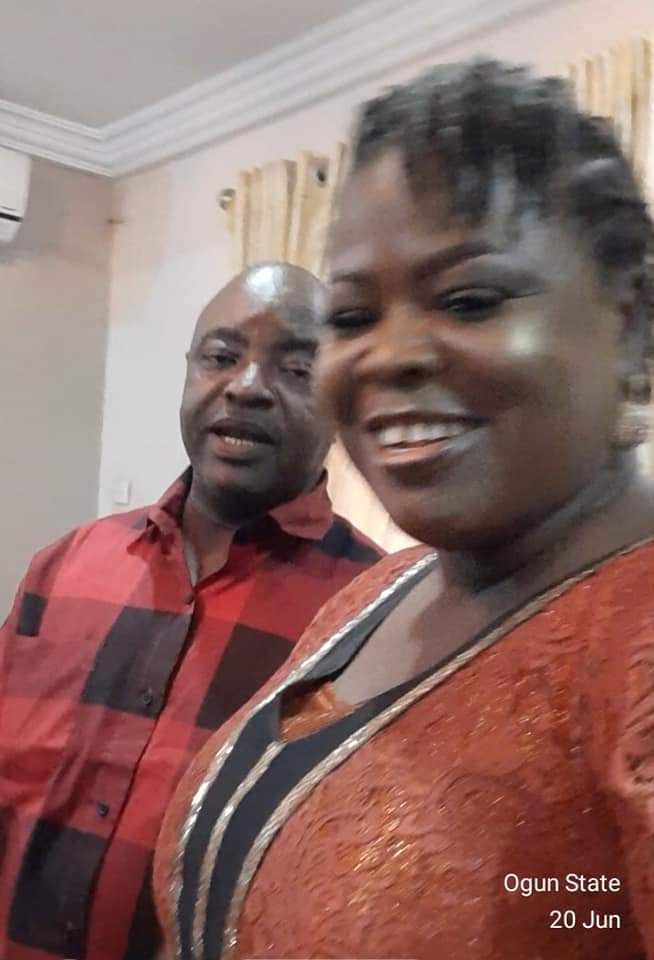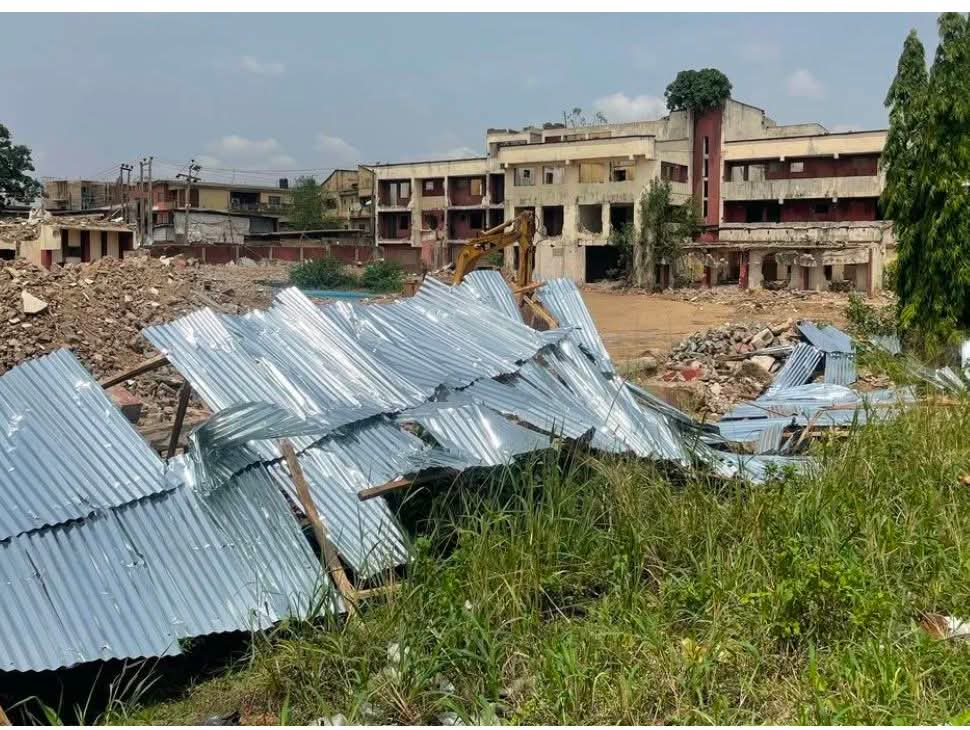The murders of Kehinde and Bukola Fatinoye, a few hours after the new year, have made me pensive and downcast since the news broke. That dastardly murder is one event of 2023 that throws me into spasms whenever my mind reflects on it. Unable to reconcile the gravity of this evil with the aesthetic beauty of life as God’s creation, this murder made me dust up my handbooks on the philosophy of evil and wickedness. I wanted a clue as to why this horror happened and why our world’s most fitting alias is wickedness and cruelty.
The Fatinoyes were killed in their home located in Ibara Government Reservation Area, Abeokuta, Ogun State, a few hours after the celebration of the birth of a new year. According to newspaper reports, the duo, who worked at the Central Bank of Nigeria (CBN) and the Federal University of Agriculture, Abeokuta respectively, had just returned from the yearly church ritual of Crossover Service when their assailants struck. Not only did the killers snuff life out of them, but their corpses were also set ablaze, ostensibly to shroud the motive of and railroad investigators from the alibi of the assassination. As they escaped the scene, the killers dragged with them the Fatinoyes’ 23-year-old son, Oreoluwa, who they abducted. Three days after, the lifeless body of Oreoluwa was found floating in a river along the Adigbe-Obada Road, Abeokuta, his hands tied behind him. Very few murders of that cruel brew have made my heart this brittle, getting me inconsolable and distraught. It was as if I knew this hapless couple while they were alive.
What juts out for all to see in this heartless murder is a literal wiping off of the Fatinoye generation. It is united by the grisly undercoating of the assassination. On its surface, this killing is callous and reeks of inexplicable wickedness that lies at the heart of man.
Globally and almost on a daily basis, heart-wrenching wickedness and evils of frightening proportions and dimensions are unleashed into the public space. Only on Christmas day, Nigerians were aghast to hear of the killing of a Lagos-based lawyer, Bolanle Raheem, gunned down by ASP Drambi Vandi at Ajah in Lagos State.
To be sure, our world is bespattered with evils and wickedness of unimaginable proportions. On December 14, 2012, for instance, a 20-year-old boy, Adam Lanz, at the Sandy Hook Elementary School in the village of Sandy Hook in Newtown, Connecticut, fatally gunned down 20 kids and six other grown-up staff members of the school. It was a mass murder that was considered to rank, as at then, as the second deadliest mass shooting perpetrated by one person in American history. History also recorded it as an American school’s second deadliest mass murder. Adam had gunned down his victims multiple times, shooting many of them at close quarters. You would think you were reading any of the famous crime thriller novels of James Hadley Chase.
What has been considered even the most intriguing and a major issue for consideration for criminologists and psychologists is that Adam was very calm, cool and devoid of emotions as he inflicted mayhem on his victims. If your immediate conclusion was that Adam was suffering the pangs of drug usage, you were wrong. Investigations later revealed that he had none in his system nor even a residue of alcohol or any mind-wrenching substance. Adam shot with his sobriety intact and as philosopher, John Phillip Togado, said, “he was in his right mind doing the most wrong thing… was in his sanest state doing the most insane thing.”
It will thus be wonky analysis to submit that, in the world today, there is a recent implosion of evil and wickedness; or that modernity has made the global atrocity paradigm shoot up. Far be it from the truth. From the creation of the world, even by the account of the holy writ and its narratives of immediate post-creation, man’s wickedness has been of heartrending stature. Like a serpent, man hatches and curates evil every single day. The seeming implosion of the narratives of evils and wickedness only get amplified by the multifarious media outlets available to man in this modern age. Parodying the holy writ, one can say that the heart of man has been desperately wicked, from his creation.
Listening to a track of late Ibadan Awurebe music maestro, Dauda Epo Akara, recently, I was reminded of how criminals concoct alibis for their psychopathic actions. I also got an idea of how musicians and society as a whole covertly lend a hand in the commitment of crimes. Done in the early 1970s, the song, while praise-singing the Oredegbe Society in Mushin, Lagos, Epo Akara sang the panegyrics of members of that Society who he said emerged from refined pedigrees. Omo eyan’re – he said of them. One of these was Lagos socialite and notorious land grabber, Jimoh Ishola, also known as Ejigbadero.
Ishola had arranged a child naming ceremony, attended by the crème-de-la crème of society, to coincide with his murder of Jimoh Oba who he hoped to dispossess of a land. For an alibi, he pasted Naira notes on the face of the invited musician for the ceremony, changed his clothes and drove, through the backdoor of his house, to go kill Oba in the farm, returned to the ceremony and continued with the event. Ejigbadero had virtually all musicians singing his praises. No one was able to bell the cat of where his obnoxious wealth emanated from, including a famous musician who sang that as inscrutable as it is to know how liquid enters a coconut pod, so was the mystery of Ejigbadero’s wealth. By the way, till today, one of my major regrets is that, in one of my off-handed discussions with Late Oba Lamidi Adeyemi, the famous king had told me that the Nigerian state and the military rulers of the time connived in Ejigbadero’s eventual conviction by the court and his subsequent execution in 1979, four years after his murder of Oba. I blame myself on why I suddenly lost my inquisitiveness and didn’t interrogate Alaafin of Oyo further on that submission. Now, the Alaafin, an iconoclast, a walking encyclopedia of ancient and contemporary history, has gone with what may be a valid information in that regard.
The cases of Adam, the murder of the Fatinoyes, point blank shooting of Lagos lawyer on Christmas day by ASP Drambi Vandi and so many others which occurred and are still occurring in the world, have provoked so many unanswered or unanswerable questions. They range from, as posed by Togado, “why do evil people find painful choices neither difficult nor painful?… Must (we) become evil to fight evil?” So, I ask, why do atrocities, evils of frightening dimensions, wickedness in high and low places, outweigh good in this world? Are human beings naturally evil?
Already, due to the multiple evils associated with the Nigerian policemen, the general impression is that the Nigeria Police Force is the natural domicile of the Nigerian Devil, in its imperial and unpretentious wickedness. I shuddered at a Twitter post I stumbled upon last week which seems to sum up the general impression of Nigerians about the Force. The post had read, “If I see a policeman dying by the roadside and needing help, God in heaven knows I will not help. I will jump and pass. I hate you guys. All of you, Nigerian policemen. My experience with you guys have (sic) left me very bitter. Even you, Mr. Ben, I hate you. You guys irritate me.” Even Benjamin Hudenyin, Lagos Police PRO, was seemingly speechless as he tried to spin the good deeds he attributed to the Nigerian police. You can imagine the ounce of wickedness from the police the fellow who wrote this must have encountered.
Philosophers say that evil is actually the parent of actions that are considered by humanity as wicked. Wicked actions are ones considered to be at the same gruesome level with that of animals or beasts. Stanley Benn, a research fellow in Philosophy at the Australian National University, Canberra, said wickedness is one of the extracts of evil.
In distinguishing different varieties of wickedness, Benn dimensioned them into self-centered wickedness, psychopathic wickedness and conscientious wickedness. According to him, self-centered wickedness can be likened to narcissism where the sufferer from this selfish wickedness defines what is good according to what is good for them. The second, psychopathic wickedness or what he labeled “moral imbecility,” happens when the sufferer does not factor the wellbeing of others into their action. The last, conscientious wickedness occurs when its perpetrator sees their action as reasonable and necessary.
While it will seem that evil is latent in the heart of man, irrespective of race, colour or religion, many underdeveloped or developing countries contribute to the pervasiveness of evil in their societies. This they do by their peremptory treatment of humanity. If we universalize humanity and remove compartments of class and other identifiers which we put different humans into, we may be on our way to protecting every man from evil. By doing this, we will be protecting ourselves as well. The ongoing trial in Moscow of Brian Kohberger, the lone suspect in the murder, on November 13, 2022, of four University of Idaho, Moscow students — Madison Mogen, 21; Kaylee Goncalves, 21; Xana Kernodle, 20 and Ethan Chapin, 20 authenticates the above assertion. Typical of students, they had spent the preceding Saturday night out of campus in a revelry and returned home in the early morning hours only to be knifed to death around 4 a.m.
Kohberger, 28, a doctoral student of Criminal Justice at the Washington State University, was fingered as suspect in the killings. His doctoral research’s area of interest is said to be criminology as he studied the mindsets of criminals. One of his classmates told investigators that days before the killing, Kohberger was engaged in discussion with his colleagues on DNAs, forensics and was a teaching assistant in his university. Harvesting a major lead of a knife sheath discovered by investigators beside the stabbed bodies of Ms. Mogen and Ms. Goncalves, the CCTV camera recordings of neighbours of the murdered students, which revealed that the killer rode into the neighbourhood in a white Elantra car around 2am and then the DNA on the knife which was picked up from the Kohberger family trash bin site in Philadelphia, the police traced and arrested Kohberger. One of the surviving roommates of the stabbed victims also reported seeing the masked killer and her description of him fitted Kohberger.
Most murderers are psychopathically wicked and do not factor others into the outcome of their actions. If ASP Drambi Vandi and the murderer(s) of the Fatinoyes had bothered about what becomes of their victims after their actions, other than theirs, they most probably would not have committed those gruesome murders. Did Vandi know, for instance, that by killing Raheem, he was killing three persons at a go? Or, as Police PRO was recorded to have said, he was a victim of the Yoruba edi, traditional African invocation used to railroad a victim into doing what they otherwise would not have wanted to do?
The killing of the Fatinoyes has all the trappings of revenge, cult or drug peddlers’ assassination. Or that of an organized crime by the mafia. This pattern is also found in southern African muti killing. The brutality in the murders was not dissimilar to mafia killing.
Those who have encountered the Nigerian police in action have said that, sans corruption and pristine investigative equipment that they still grapple with, the Force parades brilliant, competent and effective officers whose eagle investigative eyes, with clinical certainty, can spot the pregnancy of a snail, even as it is ensconced inside its shell – apologies to this Yoruba aphorism which references deftness and precision. I have engaged brilliant Lagos ex-Police Commissioner, Fatai Owoseni, countless times on Nigeria police officers’ efficiency and his statistics are believably fascinating.
However, place the Moscow police efficiency in tracking Kohberger, within few weeks of his alleged psychopathic killing of those four students, side by side the possibility that the Fatinoye killers may never be found, and you will shudder. The tendency towards evil and violence of blood-curdling dimensions are seemingly comparatively higher in advanced societies than in developing ones. For instance, the Gun Violence Archives in the United States recorded that in the first 24 hours of 2023, America recorded “59 gun deaths, 150 gun injuries, six mass shootings, two children shot… and six unintentional shootings.” However, the certainty of being caught in America and in advanced societies as a whole is a huge deterrence and disincentive on the road to perpetrating evil. Criminologists say that certainty of arrest and severity of punishment lower man’s natural inclination towards embracing his ape and beast ancestors, thus lowering rates of atrocities and reducing paradigms of evils.
In Nigeria, certainty of arrest and justice are sickeningly low. This is worsened by enveloping darkness of power outages which does not encourage individual or public installation of CCTV cameras. The distinguishing difference between Nigeria and saner climes is in technology and a people who see the police as working for them. In Moscow and Philadelphia where Kohberger lived with his father and where he was apprehended, the people cooperated with the police. In Nigeria, the people have seen too many instances of police wickedness that they don’t believe that the police work for them. Police brutality, pandemic corruption in the force and a Nigeria that is apathetic to modernization of its society are the bane of the possibility of reaching the amazing investigative level that the Idaho killings reached. I have often argued that the moment Nigeria gets the issue of electricity right, she would have solved fifty percent of her existential crises, chief among which is crime investigations. This has encouraged and flourished the pandemic of corruption among police officers who, like the flamingo, are feeding fat on the failure of the system. The flamingo, you will recall, can only eat when its head is upside down. The Nigerian system is upside down and corrupt elements eat from it.
It is why, in the buildup to the presidential election, Nigerians must be interested in the candidate who can break the curse of darkness that hovers over the country like a deathly apparition. If we have electricity, corruption will be trackable and will serve as a disincentive to the crime; economy will be revivified and our society will be run as they do human societies of the world.
By the way, all must be done to track the Fatinoye murderer(s). Not tracking them will incentivize their killers and make such killings grow rotund in Nigeria. Apprehending criminals is not for the sake of their victims, many of whom have come face to face with their gruesome fates, but for the sake of the living.





